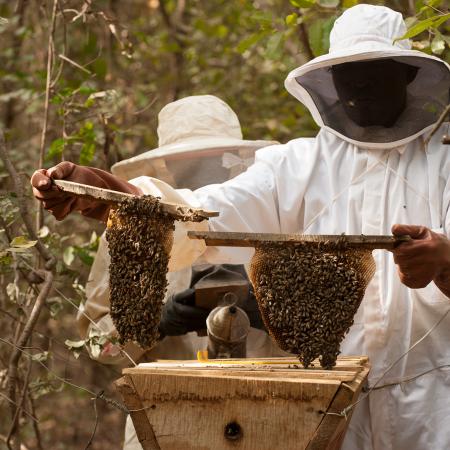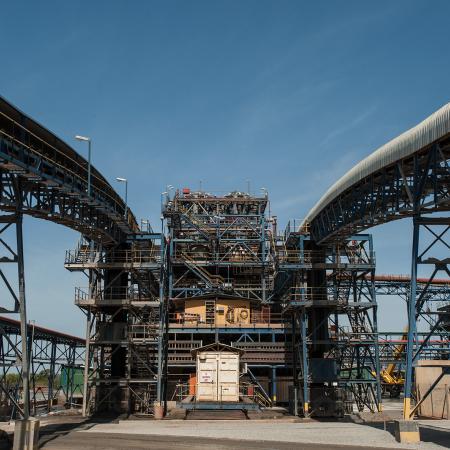
When one of the largest gold mining businesses in the world saw a rise in lost time injury frequency rate (LTIFR), it identified a need for safety training across its management staff. SHP reports.
Randgold Resources is not a typical company. The firm operates five gold mines across three African countries. Indeed, it is one of the most profitable gold mining companies in the world.
The company’s main strategy is to discover multi-million ounce gold deposits or ‘world-class orebodies’ within the major greenstone belts of central and west Africa. Four of the five mines that it operates are working under deposits discovered by its own geologists. The other site, Kibali, has almost doubled its reserves from the firm’s exploration team after acquisition of the mine.
 Specifically, the firm operates in Mali through its Loulo-Gounkoto and Morila mines, in Côte d’Ivoire it runs the Tongon operation, and in the Democratic Republic of Congo it has the Kibali mine.
Specifically, the firm operates in Mali through its Loulo-Gounkoto and Morila mines, in Côte d’Ivoire it runs the Tongon operation, and in the Democratic Republic of Congo it has the Kibali mine.
One of the company’s main objectives, considering the exploitation of the natural resource in the countries that it works within, is to improve the lives of all stakeholders in the process – and to create lasting benefits for the host countries.
Safety, community grievances, waste management and energy use are all listed as vital elements, central to the running of the gold mines.
Safety targets
 The Luolo-Gounkoto complex, which is in the west of Mali, located near to the border with Senegal. It is 80% owned by Randgold and 20% by the state. It is effectively three mines, two of which are underground – Yalea and Gara – in Loulo, and also the Gounkoto open pit mine.
The Luolo-Gounkoto complex, which is in the west of Mali, located near to the border with Senegal. It is 80% owned by Randgold and 20% by the state. It is effectively three mines, two of which are underground – Yalea and Gara – in Loulo, and also the Gounkoto open pit mine.
In 2016, it achieved 1SO14001 environmental and OHSAS 1800A health and safety management systems being re-certified, and decreased its LTIFR by 23% at Loulo. Additionally, malaria incidence went down 37% at Loulo and 18% at Gounkoto.
The picture is even more impressive at the Tongon open pit operation, located within the Nielle exploration permit in the north of Côte d’lvoire. LTIFR was down 74% year on year during 2016. At Kibali, an integrated open pit and underground operation as well as a 7.2Mtpa processing plant, LTIFR was down by 21%
Training standards
 So how did the company achieve these goals in a challenging, highly working environment?
So how did the company achieve these goals in a challenging, highly working environment?
In March 2016, Dr. Haladou Mahaman Manirou, the group health and safety manager for the company, contacted a UK-based training provider, RRC, to explore how senior managers throughout their West African operation.
Dr. Haladou said that in 2015, Randgold has experienced its first rise in LTIFR in five years – and it was ‘eager to halt and reverse the trend’.
He said: “We implemented a number of measures to improve our safety performance in 2016.
“Safety starts at the top, therefore we decided to send 146 management staff including all heads of department and their deputies on the ‘IOSH Managing Safely’ training course, to ensure they had the knowledge and skills necessary to assess and manage the various health and safety challenges in their departments.”
As part of the move, Steve Burke of RRC travelled to west and central Africa to deliver the IOSH course to numerous managers at various mines owed by the firm, across a year-long training cycle.
Root cause analysis
But once this initial IOSH training was achieved, Randgold saw this as the start rather than the end of the journey.
It was then identified the firm was in need of a new Incident Root Cause Analysis (IRCA) system. At the time, its current product was a generic package. It was functional, but did not offer Randgold the level of detail needed. It needed a new system for the types of incidents that occurred specifically in a mining environment.
A bespoke IRCA system was therefore created specific for its operations, alongside a two-day training course on how to use the system.
Current training agenda
 The firm then identified that the success of the training provided an opportunity to go to the next level, and further extend continuous development programmes for the safety teams.
The firm then identified that the success of the training provided an opportunity to go to the next level, and further extend continuous development programmes for the safety teams.
In October 2017, the NEBOSH International General Certificate (IGC) course will be provided by RRC in Côte d’Ivoire for health and safety personnel from across the group, followed by a number of IOSH Supervising Safely courses in both Mali and the Democratic Republic of Congo.
Another issue identified was the spoken language barrier. English is the business language for Randgold, but west Africa is a predominately French-speaking area. Therefore, the firm began to look at training for supervisors and team leaders with little understanding of English.
Although with headquarters in the UK, RRC used its Tunisian office for assistance, as trainers were experience in delivering NEBOSH courses, and other short training material, in French. Looking at Rangold’s needs, a bespoke ‘safety at work for supervisors’ course was delivered, in French, with tutors that could offer the necessary language skills from both UK and Tunisian offices.
Arming with knowledge
 Dr. Haladou said the training ensured managers were ‘armed with the knowledge’ to ensure they were better equipped to embed a safety culture in their teams – and the wider organisation.
Dr. Haladou said the training ensured managers were ‘armed with the knowledge’ to ensure they were better equipped to embed a safety culture in their teams – and the wider organisation.
He said: “We believe the 58% increase in near miss reports in 2016 is an indication of improved awareness of safety risks.
“We now plan to extend the training by running a similar course for team supervisors in 2017.
“Managers are in the heart of our operations and we believe that leadership is the fundamental driver of health, safety and production performances.”
Advance your career in health and safety
Browse hundreds of jobs in health and safety, brought to you by SHP4Jobs, and take your next steps as a consultant, health and safety officer, environmental advisor, health and wellbeing manager and more.
Or, if you’re a recruiter, post jobs and use our database to discover the most qualified candidates.






